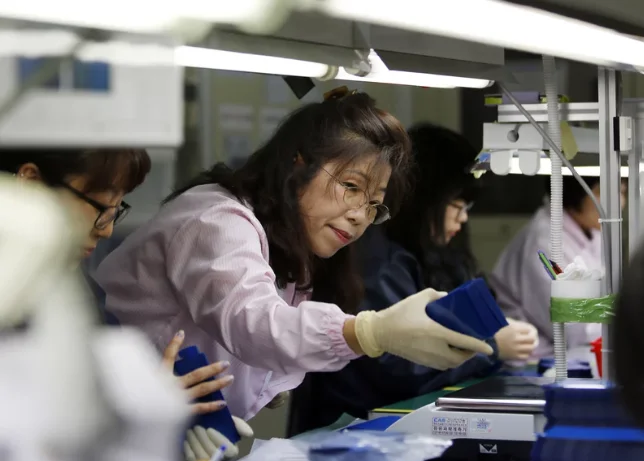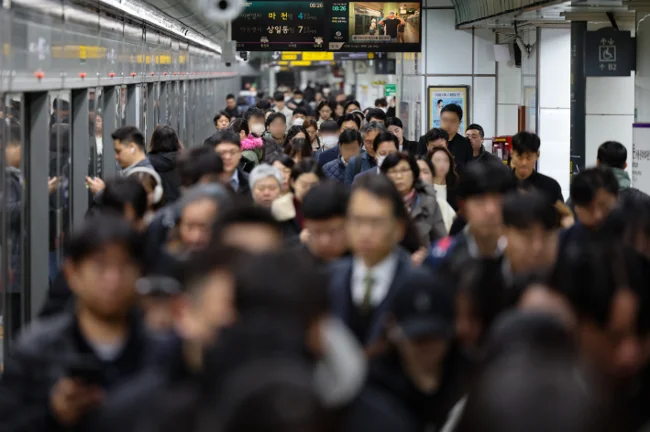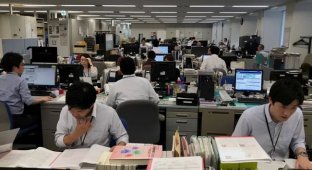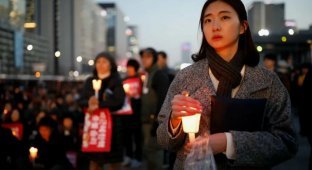Will a 35-Hour Workweek Save South Korea? (5 photos)
Currently, the legal limit for the working week in the country is 52 hours. Which does not provide a sufficient balance between work and personal life for family planning. And so the researchers came to the conclusion that only such a measure will save the birth rate statistics in South Korea, which are literally going into the negative. 
Tomorrow we all come with pillows and SLEEP AT WORK
How did you come to this conclusion
South Korea has the lowest birth rate of any country: government data for 2023 shows that the average number of children expected for a South Korean woman during her reproductive years fell to 0.72 that year from 0.78 in 2022. A birth rate of 2.1 is needed to maintain the population.
Scientists at the Gyeonggi Research Institute have made a "discovery" (which surprised no one) that the alarmingly low birth rate in Korea is due to a corporate culture that requires too much time and effort from people. 
A Korean family WITH TWO children, how rare
The current legal limit of 52 hours of work per week was introduced in 2018, which consists of 40 standard hours plus 12 hours of overtime. And this does not provide enough balance between work and personal life.
In 2024, the Institute conducted a survey among 1,000 workers aged 20 to 59. All respondents named excessive workload at work as the biggest obstacle to having a family. Moreover, 26.1 percent of men and 24.6 percent of women named this as their main obstacle to not starting a family. 
Did you know that a Korean works 2,069 hours a year
And those who already have a family said that EVERY workday should be 1.5 hours shorter. To have time to do at least something at home, for example, have dinner with the family.
And what will South Korea do?
South Korea has introduced many other initiatives to increase the birth rate, many of them look frankly helpless. For example, their "maternity capital" given their prices is very small.
In 2024, the government doubled the employer-paid parental leave to 20 days. Crazy 20 days, right? 
According to statistics, Koreans sleep even less than the Japanese
And also expanded the right of fathers to take leave in several intervals.
All sorts of initiatives have always been weak and half-hearted, so they didn't really work and the birth rate statistics only fell.
Therefore, it is worth listening to the advice to reduce working hours. In 2024, Gyeonggi Province initiated an experiment with a four-day workweek, in which more than 50 organizations took part.
It allowed employees to choose between a shortened workweek every two weeks or shortened daytime hours. Something tells me that even if some conclusions are drawn from the experiment, no one will do anything on a national scale. 
Korean women are also terribly afraid of pregnancy, because they will gain weight and be called ugly. What is typical is that they really will be called ugly.
Scientists are asking to at least count travel time as working hours for employees. But then companies will simply hire employees who live nearby.
Do you think Korea has the strength, intelligence and determination to do something radical to save the nation?


























